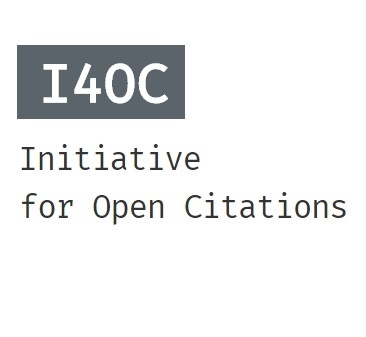I4OC : supporting openly accessible citations
16/05/2017


I4OC initiative - launched in April 2017 - aims to facilitate publisher efforts to make data freely available and to promote the creation of a comprehensive, freely-available corpus of scholarly citation data. Such a corpus of scholarly citations with no copyright restriction will be valuable for new as well as existing services, and will allow many more interested parties to explore, mine, and reuse the data for new knowledge.
CONTEXT : CITATIONS :
As the number of scholarly publications is estimated to double every nine years, citations – and the computational systems that track them – enable researchers and the public to keep abreast of significant developments in any given field. For this to be possible, it is essential to have unrestricted access to bibliographic and citation data in machine-readable form. Citation data are not usually freely available to access, they are often subject to inconsistent, hard-to-parse licenses, and they are usually not machine-readable... Many publishers currently deposit reference lists from their journal articles to Crossref as part of their participation in Crossref’s Cited-by service. To open their references, along with the other bibliographic metadata that publishers send to Crossref, publishers need to turn on reference distribution for all of the Digital Object Identifier (DOI) prefixes they manage. This step allows references within the Crossref members’ articles to be distributed without restriction through all of Crossref's Metadata Delivery services, including the REST API and bulk metadata dumps, to any interested party. See for additional information on reference distribution and on how to participate in Crossref’s Cited-by service. |
The Initiative for Open Citations - I4OC
The aim of this initiative is to promote the availability of data on citations that are structured, separable, and open.
Structured means the data representing each publication and each citation instance are expressed in common, machine-readable formats, and that these data can be accessed programmatically. Separable means the citation instances can be accessed and analyzed without the need to access the source bibliographic products (such as journal articles and books) in which the citations are created. Open means the data are freely accessible and reusable.
|
Key benefits arising from a fully open citation dataset include:
|
For more information, including the list of:
- publishers who have chosen to deposit and open up citation data,
- organizations and projects that have expressed support for the Initiative for Open Citations and interest in building on and promoting the availability of open citation data,
view: I4OC Homepage
